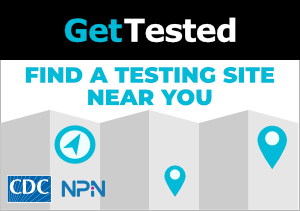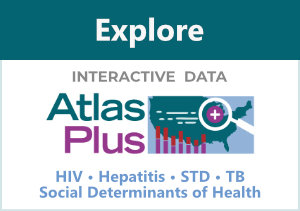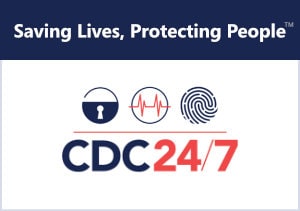This web page is archived for historical purposes and is no longer being updated. New funding is available through PS23-2302 to support the prevention and control of HIV, viral hepatitis, STDs, and TB in the USAPIs.
Changes between PS13-1301 and PS18-1801 FAQs
PS13-1301, “Accelerating the Prevention and Control of HIV/AIDS, Viral Hepatitis, STDs and TB in the U.S.-Affiliated Pacific Islands,” is the current cooperative agreement (2013-2017). PS18-1801, “Accelerating the Prevention and Control of HIV, Viral Hepatitis, STDs and TB in the U.S.-Affiliated Pacific Islands,” is the cooperative agreement for this NOFO and the project period will be from 2018-2022.
Question
What are the changes to the application eligibility requirements?
Answer
PS13-1301 limited eligibility of applicants to the six U.S.-affiliated Pacific Island (USAPI) jurisdictions, but PS18-1801 is considered open competition which means that anyone can apply for funding. However, only one applicant will be funded in each of the six USAPI jurisdictions. Additionally, if the applicant is other than a Department/Ministry of Health in the specified jurisdiction, the applicant must submit a memorandum of agreement/memorandum of understanding with the Department/Ministry of Health in the jurisdiction for which it is applying. The memorandum of agreement/memorandum of understanding should include the authority to collect and submit surveillance data. Applications that do not comply with these requirements will be determined non-responsive and will not receive further review.
Question
What are the new staffing expectations?
Answer
To ensure adequate program support, PS18-1801 outlines the specific staff positions and percent time dedication to the cooperative agreement below:
- Program Collaboration and Service Integration (PCSI) Lead (minimum 40%)
- PCSI Surveillance Coordinator (100%)
- PCSI Laboratory Coordinator (minimum 25%)
- TB Education and Training Focal Point (percentage to be determined by applicant)
Question
What are changes to the data reporting requirements?
Answer
There are three major changes:
- In PS13-1301, data were reported on an annual basis in the Annual Progress Report (APR). The Annual Progress Report is now referred to as the Annual Performance Report (APR). The PS18-1801 APR will be due 120 days before the end of the funding year (end of August).
- In PS18-1801, there will be an emphasis on using data to improve programs and quantitative data will be required to be reported to CDC semiannually in addition to the APR, using the CDC-determined format. CDC will use these data to generate Rapid Feedback Reports in which data from all Recipients (previously referred to as Grantees) will be summarized and Recipients can view their performance in relation to their peers.
- Lastly, HIV, STD and TB programs will have separate disease-specific data reporting requirements in addition to the reporting requirements previously described. A list of the reporting requirements can be found at Overview of Notice of Funding Opportunity Announcement (NOFO): PS18-1801.
Question
What are the changes to the activities?
Answer
Activities will be aligned with four strategies and the major changes are listed.
- Strategy 1: Program Collaboration and Service Integration (PCSI)
- Develop and implement a detailed integration program plan with partners (Activity 1.1).
- Ensure recommended testing of pregnant women for HIV, HBV, chlamydia, gonorrhea, and syphilis (during the same prenatal visit), once within their 1st trimester (Activity 1.2).
- Strategy 2: Surveillance, Data Management, and Reporting
- Implement a quality assurance process and conduct quality assurance of HIV, HBV, STD, and TB data to assess completeness, timeliness, and accuracy (Activity 2.3).
- Disseminate data and findings to drive public health action by developing an annual publication of HIV, VH, STD, and TB activities and data that includes a summary per disease (Activity 2.4).
- Strategy 3: Health Systems Strengthening
- Develop and implement individual training plans for HIV, VH, STD, and TB surveillance, programmatic and laboratory staff (Activity 3.1).
- Develop an inventory procedure to ensure an adequate supply of all necessary test reagents, monitor supplies, and anticipate (forecast) the need to order testing reagents, kits, treatments, and associated medical supplies (Activity 3.3).
- Strategy 4: Disease-Specific Prevention and Care
- HIV Prevention and Surveillance
- Awardees will have to be certified to submit HIV case surveillance data within the first year of funding. Certified means that the program has either been approved previously to submit their HIV surveillance data following NCHHSTP guidelines for security and confidentiality, or that they will meet these guidelines within the first year to submit their HIV surveillance data within the first year of funding based on approval from HICSB leadership.
- Emphasis on targeted rapid testing among men who have sex with men, persons who inject drugs, and commercial sex workers (Activity 4.1)
- Viral Hepatitis
- Focus on Hepatitis B
- STD Prevention
- Awardees will have to develop surveillance activities to review and investigate all reports on all perinatal deaths, and to identify and complete reports for possible links with maternal syphilis and perinatal HIV. (Activity 2.1 in PS18-1801)
- Addition of timeframe for which clients with STDs should be appropriately managed (Activities 4.1 and 4.2)
- TB Prevention and Control
- Implement the TB case management approach to ensure that all treatment and public health activities are completed for a person with suspected or confirmed TB disease (Activity 4.1).
- Conduct monthly case conference meetings to review the treatment of persons with suspected or confirmed TB disease currently under care (Activity 4.1).
- Laboratory
- Emphasis on building laboratory capacity by developing and implementing individual training plans (Activity 3.1)
- Develop an inventory procedure to ensure an adequate supply of all necessary test reagents, monitor supplies, and anticipate (forecast) the need to order testing reagents, kits, treatments, and associated medical supplies (Activity 3.3).
- HIV Prevention and Surveillance
Question
Why have indicators from PS13-1301 been removed from this NOFO?
Answer
This is a new NOFO that builds upon the previous cooperative agreement.


